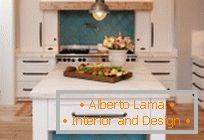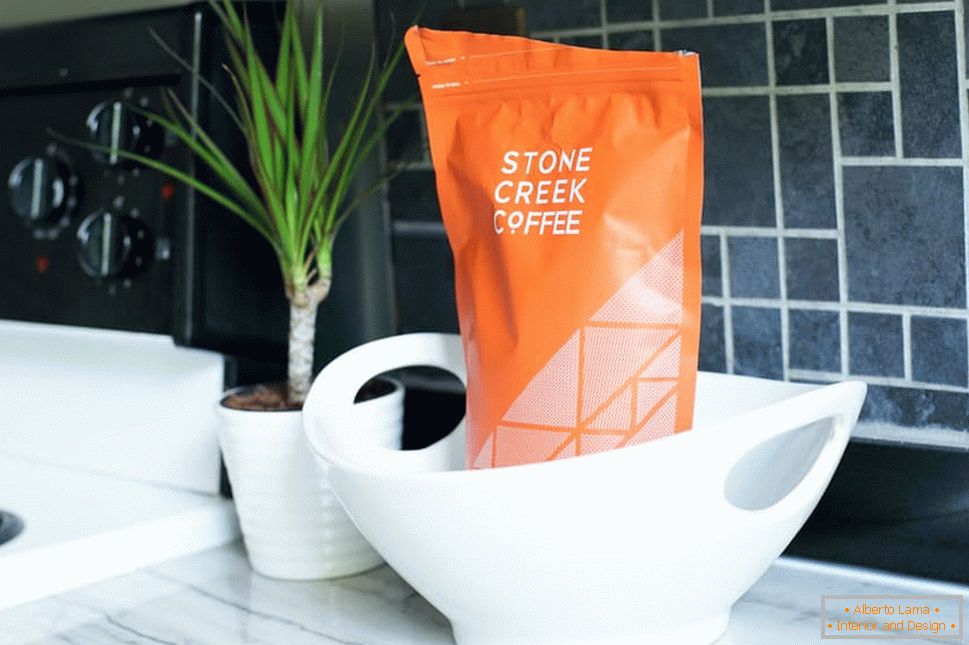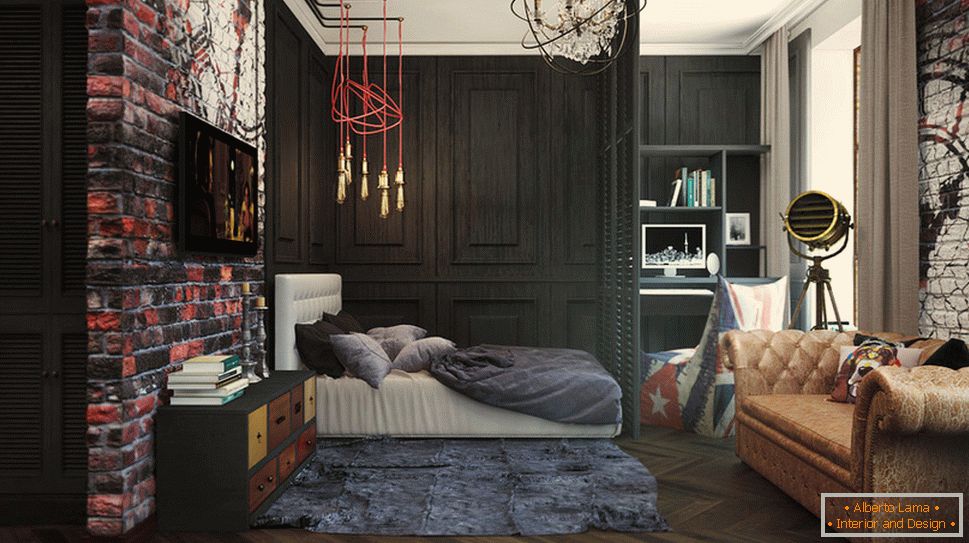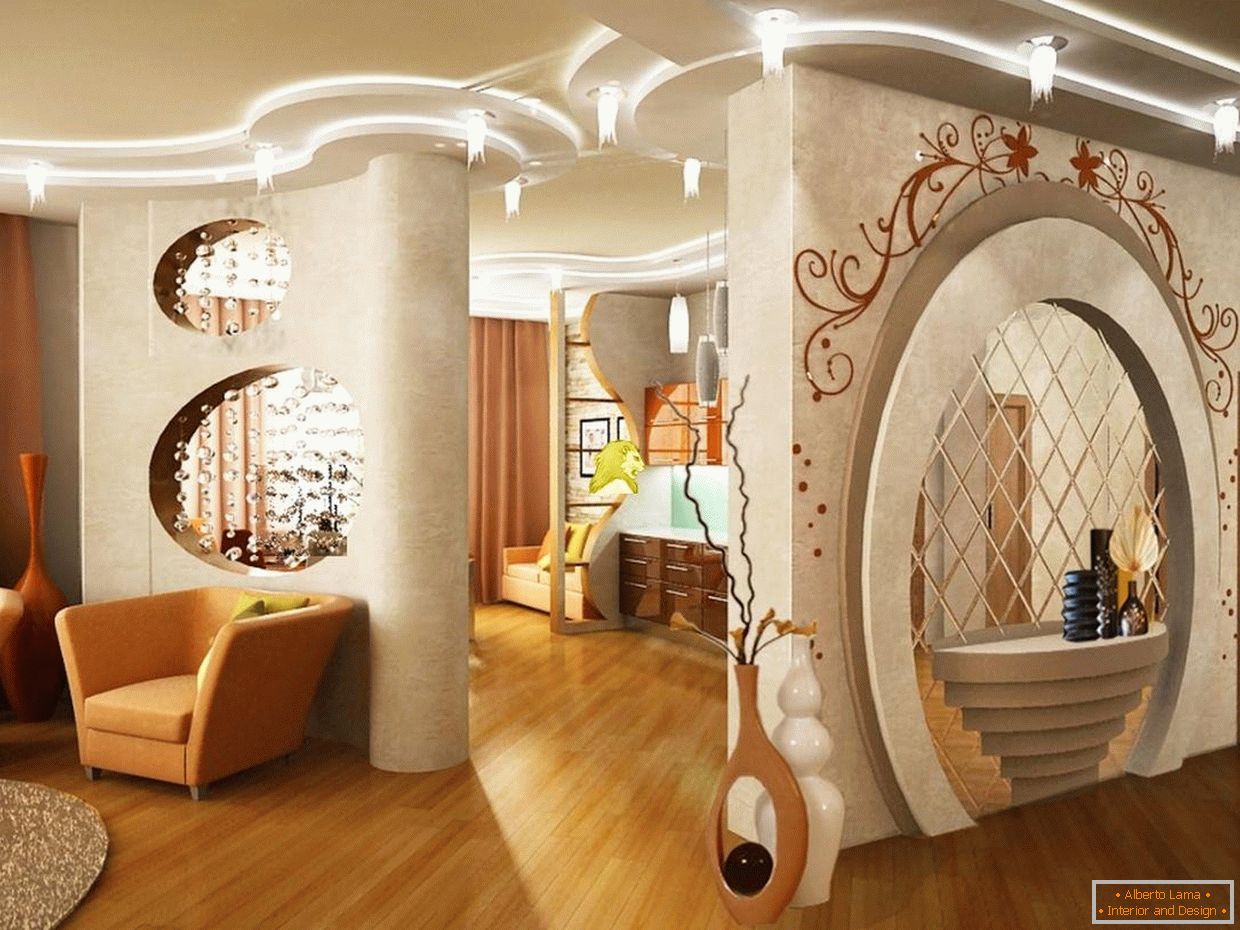
The plasterboard walls are often used for interior decoration. This allows you to easily level the surface, without applying plaster. Gypsum boards (GKL) have a smooth front side, which is completely ready for application of finishing coatings, building mixes, puttying, paint, wallpaper, decorative tiles. Often this material is used to create figured interior designs, arches, niches, shelves, partitions. For rooms with high humidity there are varieties of drywall that are well resistant to moisture and can be used in such conditions. This practical, easy-to-use material has many advantages and features.
In gypsum cardboard there are no synthetic additives and toxic substances, it can safely be considered environmentally friendly and safe. The material is excellently amenable to processing and modification. Thanks to this, complex reliefs and designs are easily created. Pipes, wiring, emptiness in the walls, various communications quickly and neatly masked with plasterboard. It has the properties to absorb and return moisture, to regulate the optimal climatic indices in the room. The front surface of the material is almost completely ready for decorative lining. The cost of finishing the GKL will be cheaper than plaster, while the process itself will be much easier and cleaner.
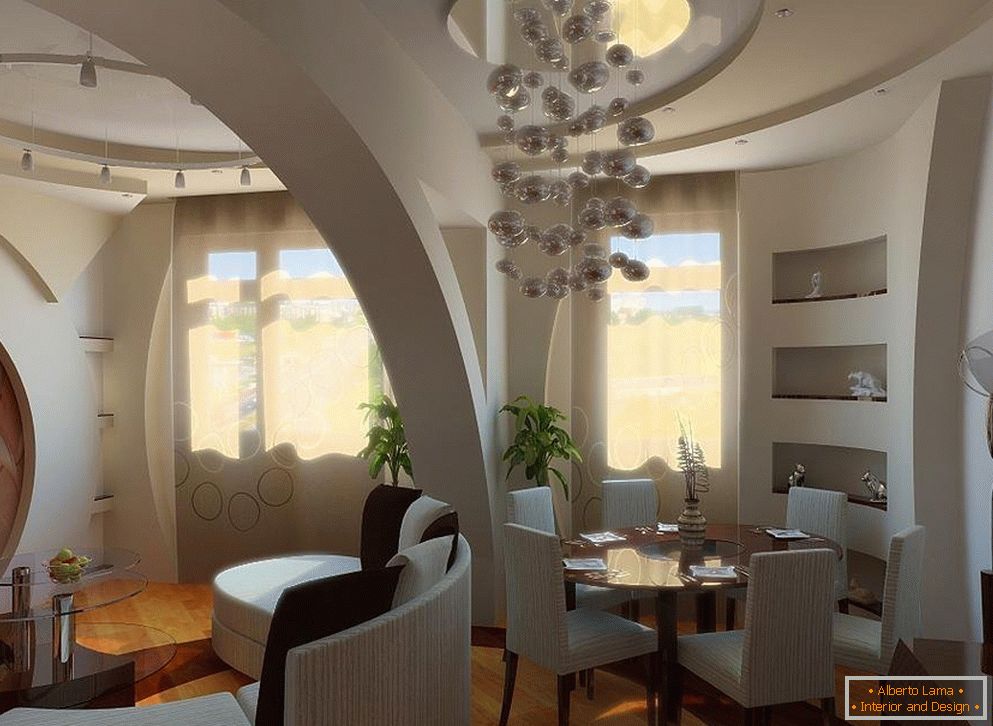
Deficiencies include fragility and instability to strong water impacts. If the room is ruptured by water and there is a flood, then with prolonged contact with water, even moisture-resistant gypsum board swells, deforms and deteriorates. Strong blows damage plasterboard surfaces, and shelves, racks made of this material do not withstand too heavy objects. But if the plasterboard is damaged, it is easy to repair. And if we do not allow long-term interaction with large volumes of water, then we can assume that it has practically no drawbacks.
See also: Options for laying tiles in the bathroom 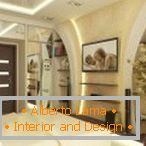
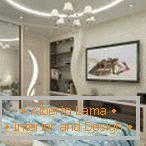
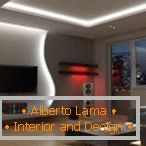
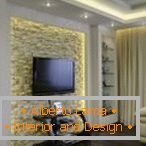
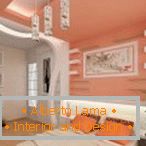
Embossed wall decoration
Applying drywall in the interior can create any relief composition, embody the most interesting ideas. To do this, you first need to design what kind of pattern or shape you want to decorate the walls. Further, the room is prepared, the working space is freed. The surface must be cleaned, the existing cracks are patched and markings can be applied for the future relief composition. On the marked lines a profile frame is installed, which is subsequently lined with gypsum boards using self-tapping screws. The resulting figure should be putty, after which it can be decorated with paints, wallpaper, decorative stone or tiles.
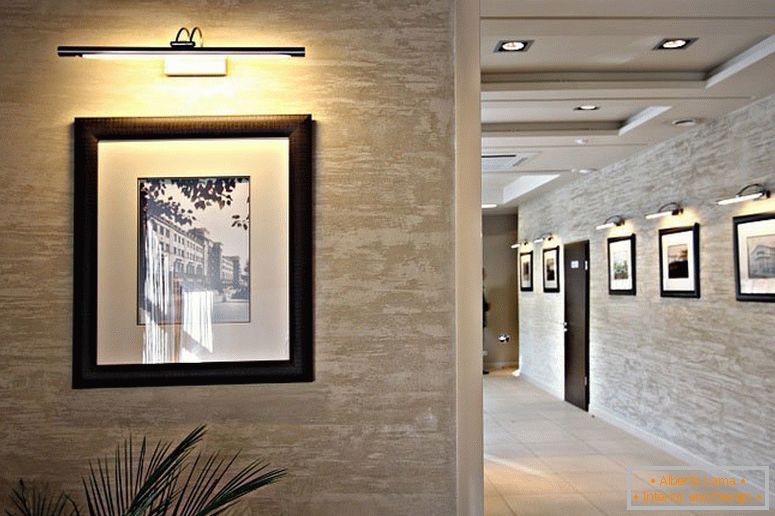
On the wall, trimmed with smooth plasterboard, it is easy to create any relief using plaster or decorative plaster. Some manufacturers offer 3D gypsum panels with an extraordinary relief design. True, this novelty is sometimes difficult to find in a free sale, in some cases, the panels are manufactured by individual order.
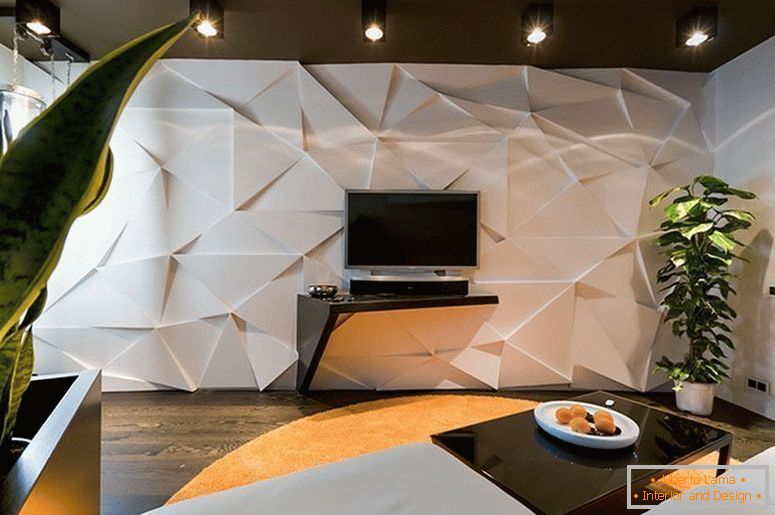
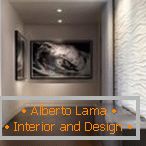
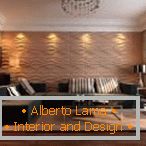
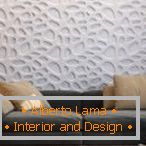
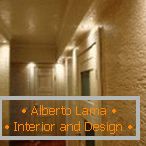
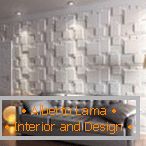
Drywall arches
In modern interiors, especially in living rooms and hallways, arched constructions of various types are often found. The most popular are the classic and domed design of doorways. Also, using a decorative arch, the room is divided into separate zones. The design itself can be simple or have curved smooth lines, patterned cutouts. It depends on the imagination of the artist. An experienced master should be engaged in the creation of the arch, since this process assumes precise calculations and a certain skill.
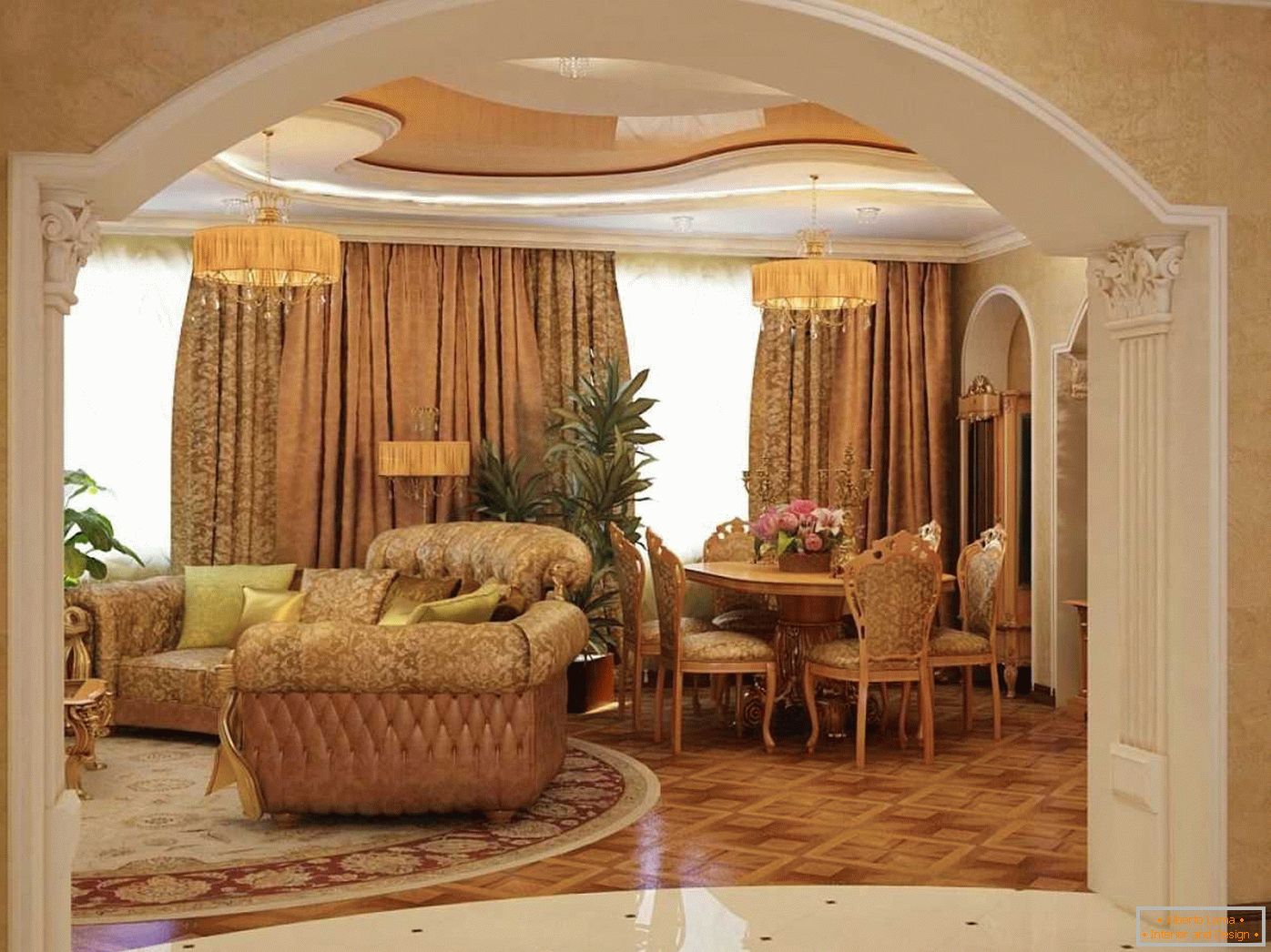
For this work, in most cases, an arched gypsum board with a thickness of 6.5 mm is used. The width of the opening and the bending radius are preliminarily measured. Further according to the obtained dimensions, the GCR is cut. On the required site, a stable arc-shaped metal frame is manufactured and firmly fixed, which is subsequently covered with plasterboard. At this stage, lighting is thought out, it should be laid before the beginning of the skin. Do the work carefully and accurately to avoid gross mistakes, do not damage the fragile drywall.
Read also: Decorative PVC panels 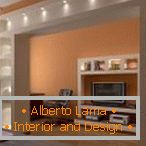
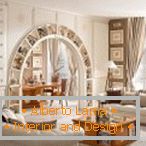
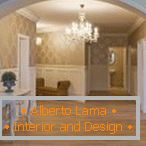
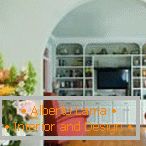
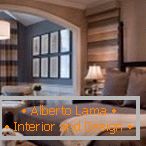
Niches
Niches из гипсокартона позволяют сэкономить пространство в помещении и обеспечить место для хранения вещей. В отличие от полок, они размещаются не на стене, а внутри нее. Такие конструкции могут выполнять практические и декоративные функции одновременно. Самое важное в создании ниши, это максимально прочный каркас, который сумеет выдержать тяжелые предметы. Ведь иногда на них может размещаться плазменный телевизор, керамические вазы и другие вещи. Если каркас не будет обладать достаточной прочностью, то конструкция попросту развалится. Поэтому создавать и устанавливать гипсокартонные ниши должен опытный, умелый специалист.
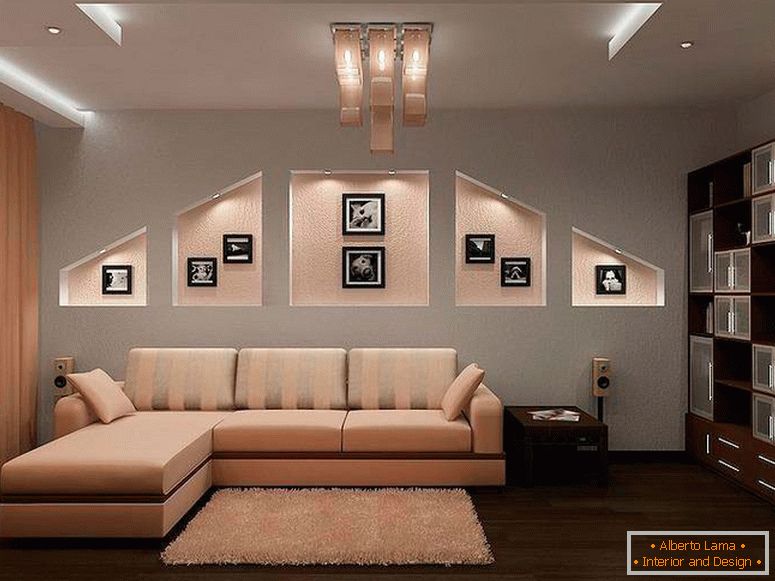
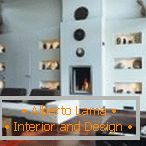
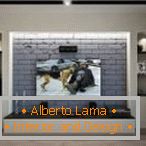
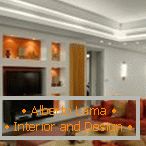
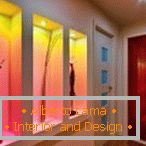
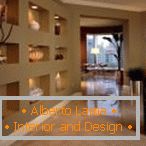
Decorative partitions
Often partitions are used for zoning rooms in an apartment. For example, using such configurations, you can create an additional space for the dressing room in the bedroom or divide the working and dining areas in the kitchen. The appearance of partitions can be absolutely anything. It can be an openwork or patterned partition based on a curvilinear framework. Or with strict geometric shapes and additional shelves for the arrangement of decorative details. Often piers hide behind themselves wiring and various communications. You can create a similar design yourself, if you carefully read the instructions, having studied the relevant information materials.
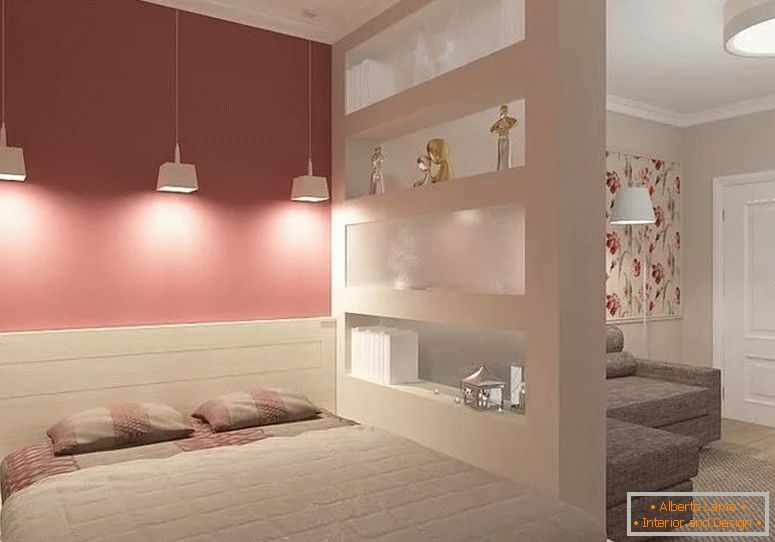
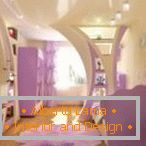
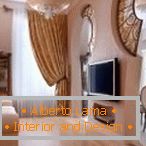
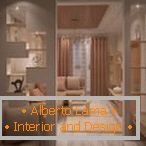
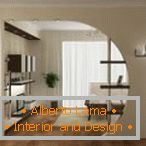
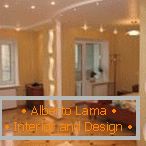
Shelves from plasterboard
In the room it is easy to create a beautiful functional shelf from the GKL, and it is possible to combine many such elements in one common composition and get a kind of furniture wall. In this case, it will be ideally suited to the style and size of the room.
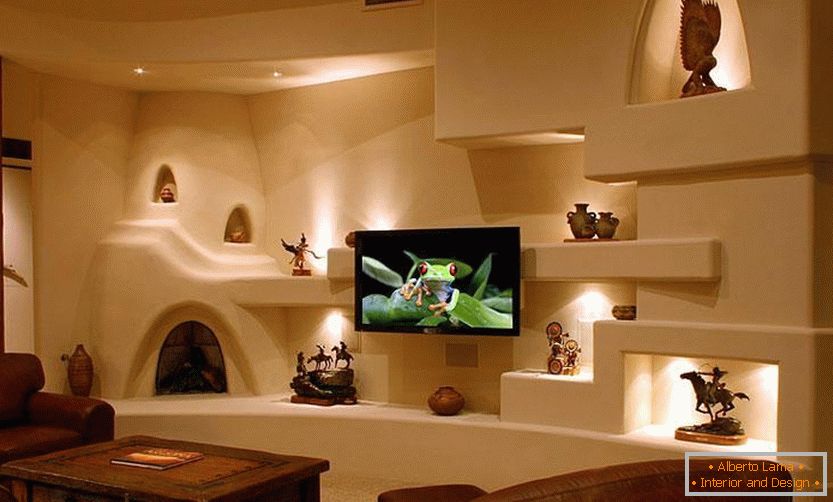
The principle of creating gypsum boards is based on the same actions:
- design, drawing and sketch;
- placement of markings on the working surface;
- fabrication and installation of the frame;
- Sheet cutting and sheathing;
- decoration.
The project can be compiled by an old proven method on paper or by using convenient free computer 3D modeling software. Accurate, detailed design is the key to an excellent result.
Read also: Laminate on the wall in the interior - a creative solution 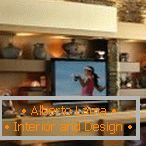
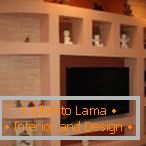

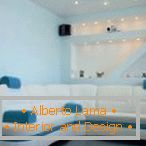
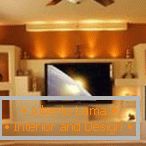
How to properly prepare gypsum cardboard for painting
The stage of surface preparation consists of several actions:
- padding;
- putty;
- grinding.
Initially, the gypsum board base should be carefully treated with a special primer that will improve the adhesion of building materials to the surface and will reduce their consumption. Further, the starting gypsum putty is filled with open joints. After drying, you can evenly apply a thin finish layer over the entire surface.
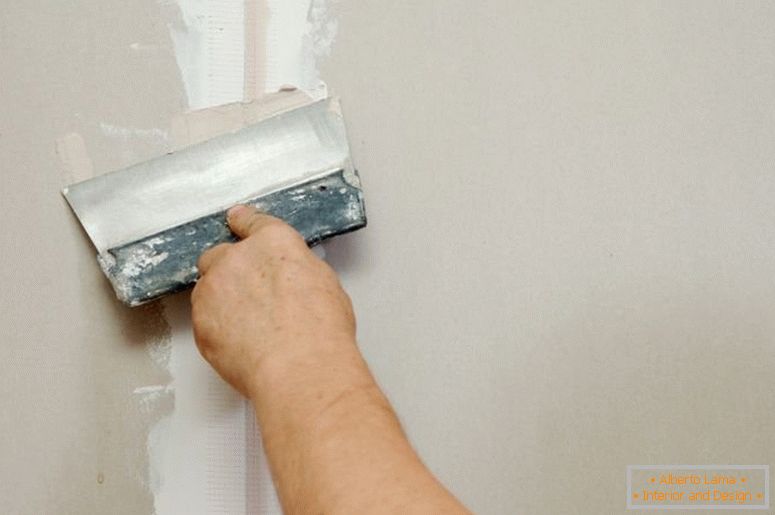
It is important that the pre-coat is dry before applying the next one. Otherwise, cracks can form which will become noticeable during painting.
The next important step is grinding, which will ensure a perfectly smooth and smooth base for subsequent painting. In the end, you need to re-apply the primer.
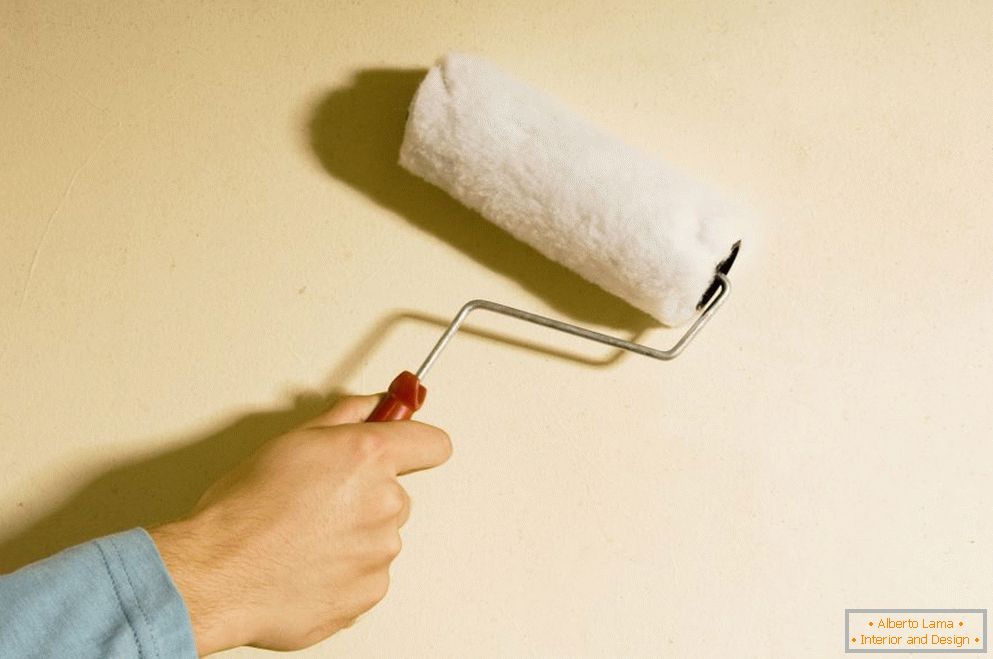
Conclusion
Plasterboard sheets are widely used for finishing walls and ceilings. The material is popular due to its versatility, ease of use, excellent quality characteristics and affordable cost. Using gypsum cardboard it is possible to create a stylish, functional design. Supplement the room with various curved designs that will add extra aesthetics and comfort to the interior. The material is easily amenable to modifications, which makes it possible to realize the most daring and creative ideas.

